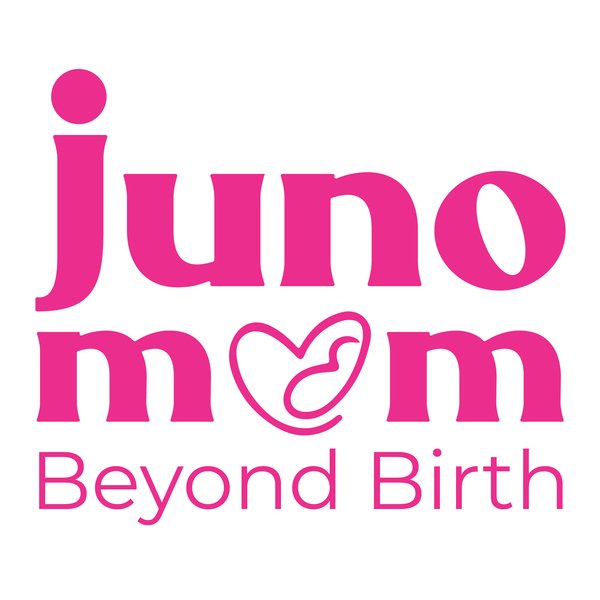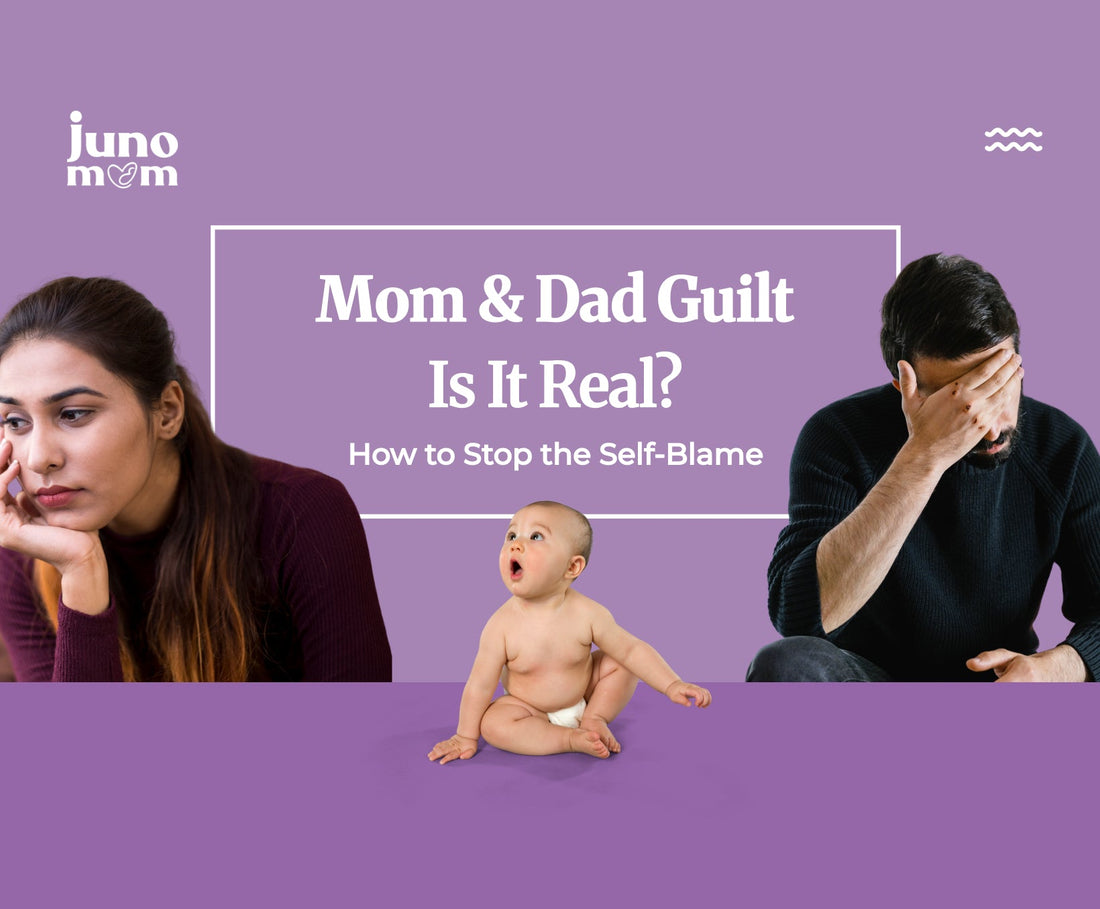Have you ever stared at your baby while they slept and thought, “Was I patient enough today?” Or maybe you scrolled past a picture-perfect mom-and-baby post and wondered if you were falling behind in your parenting journey. If yes, welcome to the not-so-fun world of parental guilt — something almost every mom and dad experiences but rarely talks about openly.
Whether you're a working parent juggling deadlines and diapers or a stay-at-home one managing tantrums and to-do lists, that small voice of doubt can sneak in. “Did I do enough?” “Am I doing it right?” These thoughts can slowly drain your confidence and joy. But here’s the truth: feeling guilty doesn't make you a bad parent. It actually means you care.

In this blog, let’s talk about what mom and dad guilt really is, why it happens so often (especially in today’s hyper-connected world), and how to break free from the constant self-blame. You’ll also find simple, real-life ways to handle these feelings with kindness and perspective.
What Is Mom & Dad Guilt, Really?
Parental guilt is the emotional weight parents feel when they think they're not doing enough or doing something “wrong” in raising their child. It’s the sinking feeling after a short-tempered moment or the worry that your child deserves more time, attention, or opportunities.

For moms, guilt often stems from the unrealistic pressure to “do it all”—be a nurturing mother, maintain a home, look after herself, and maybe even return to work quickly after childbirth. It’s deeply linked to the emotional layers of motherhood guilt that many women silently carry.
Dads, too, experience this guilt, although it’s not discussed as openly. Many fathers struggle with the new parent struggles of providing financially while wanting to be more emotionally present, especially when they’ve grown up with different examples of fatherhood.
Common Triggers of Parental Guilt
Guilt doesn’t appear out of nowhere. Here are a few common reasons moms and dads feel weighed down:
1. Work vs. Baby Time
Going back to work after delivery often sparks guilt in both parents. You may feel like you’re missing out on big milestones or not being present enough. But providing for your baby is also part of parenting—it doesn’t mean you’re choosing work over love.
2. Choosing Yourself
Yes, sometimes we need a break from crying, feeding, or just being “on” all day. Choosing rest, sleep, or even watching a show alone can make parents feel selfish. But caring for yourself is essential in the parenting journey.
3. Not Meeting Unrealistic Standards
From perfectly packed lunchboxes to elaborate DIY activities, we often compare ourselves with other parents (especially on Instagram). This can create pressure to be a “perfect” parent when in reality, no such thing exists.
4. Screen Time or Quick Fixes
Giving your toddler screen time so you can take a shower? Ordering food instead of making a “balanced meal”? You’re not alone—and it doesn’t mean you're failing.
How Culture and Society Add to the Pressure

In many Indian households, parenting pressure is shaped by generations of expectations. Grandparents, relatives, or neighbors may give advice that’s not always helpful but adds to the guilt. Comments like “We never did this in our time” or “You should be with the baby full-time” can make parents feel judged, even when they’re doing their best.
Fathers may face pressure to focus more on earning than bonding, while mothers are often expected to bounce back and be emotionally available around the clock.
How to Let Go of the Guilt (Step-by-Step)
Let’s be real—you may not be able to stop guilt altogether. But you can learn to manage it, question it, and let go of the constant self-blame.
1. Pause and Name the Feeling
Instead of brushing it off, acknowledge the guilt: “I feel guilty for yelling today.” Naming the feeling gives you the power to respond instead of react.
2. Challenge the Thought
Ask yourself: Is this guilt coming from truth or pressure? Are you really failing—or are you human?
3. Set Realistic Expectations
Your child doesn’t need a perfect parent—they need a present, loving one. You’re not failing if your child had a cheese sandwich instead of a home-cooked meal.
4. Ask for Help
Parenting isn’t a solo job. Whether it's your partner, a friend, or even a postpartum support group—lean on your circle. You’re not meant to carry this alone.
Every Parent’s Journey Looks Different

One of the most powerful things to remember is this: Healthy parenting looks different every day. Some days you’ll have energy for games and giggles. Other days, you’ll be tired and just make it through bedtime. Both days count.
Dads might show love through routines and small actions—moms might show it through cuddles and conversations. Both are valid. The goal is connection, not perfection.
And if you're in the fourth trimester, navigating all the newness after delivery, remember that you're healing too. Give yourself grace..
A Little Note from Juno Mom
At Juno Mom, we’ve met hundreds of new moms and dads who feel like they’re not doing enough. But here’s what we’ve learned: you are enough. You’re showing up, trying your best, and that’s what truly matters.
Whether you're navigating fatherhood guilt, figuring out the motherhood guilt maze, or simply managing the weight of expectations, we see you. We're here to walk beside you with resources, support, and care that prioritizes emotional wellness for parents.


